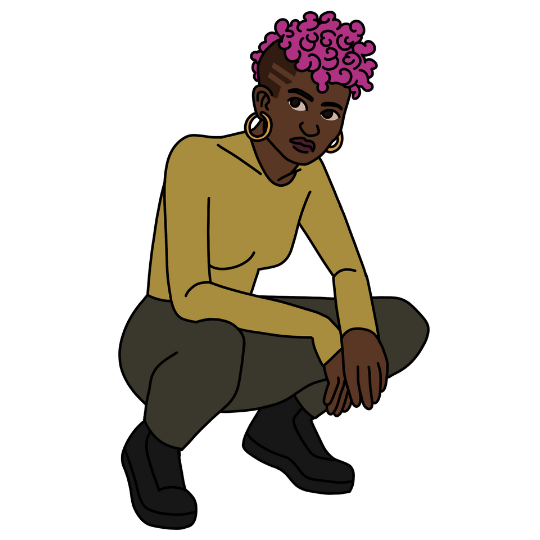How to support yourself and others when dealing with loss
Posted: 23 Mar 2023In this interview, Rosie speaks to Dany Bell, RGN, MSc and member of our Clinical Advisory Board about grief, guilt, and how to support yourself and others during times of loss.
It’s important to know strategies to not only take care of yourself when dealing with loss, but also how best to support others. It can often be challenging to know the first step in being there for a loved one who is grieving, and we want to be able to provide some guidance on how to start that conversation.
The Interview
Grief can come in many forms. Can you explain some of the common behaviours we may see and experience during times of grief?
Whether it’s a person’s first time dealing with grief or their third, it never gets easier. And not only can grief manifest differently for different people, but each personal encounter with grief can also be different from the last.
Grief can often mean not only coping with the loss of a person but also coping with the intense emotions felt in their absence. People grieve for many reasons so it may not only be triggered by death but by other kinds of loss like the loss of a job, the break-up of a major relationship or the loss of a beloved pet.
Some of the emotional signs of grief are:
- Overwhelming sadness (lots of crying) or numbness to emotion
- Anger or irritability
- Fear or anxiety
- Guilt
That overwhelming sadness is something I have experienced when I lost my dad. Whilst the crying didn’t last, that deep sadness and missing him lasted much longer – missing his smile, his humour and his love never fades, it just gets easier to bear.

Grief can also manifest physically, and people may experience:
- Feeling physically or emotionally drained
- Feeling sick or unwell
- Feeling aches or pains
- Over-sensitivity to stimuli like noise
Behavioural changes can be the most unsettling symptoms and behaviours that may be observed or experienced are:
- Withdrawing from others or the outside world
- Struggling with concentration or productivity
- Restlessness or an inability to relax
- Loss of appetite or comfort eating
- Disturbed sleep or nightmares, flashbacks, and visions
People won’t necessarily experience all of these, but they are examples of some of the signs and symptoms of grief and behaviours people exhibit.
Experiencing bereavement and loss is often a tricky water to navigate, and often people who witness others grieving don’t know how to support their loved ones in pain. What would be your guidance for supporting someone who’s experiencing a loss?
It can often be difficult to know what to say to someone who is experiencing grief from loss. So, consider:
- How you acknowledge the loss – despite feeling uncomfortable its important not to avoid contact with the person or acknowledging their loss. Just letting them know you are there to list if they would like can be helpful and reduce any feelings of isolation.
- Consider options for contacting them depending on your relationship and knowledge of them – some people may prefer a text, others a written acknowledgement and note you are available to listen via post. Others may prefer in person contact.
- Accept they might need some space
- Don’t be afraid to ask them what they need in terms of support
- Be a good listener
- Offer practical help
- Understand mood swings
- Give them time
One of the ways we coped as a family is that my siblings and I would go somewhere that had meaning for our dad such a rose garden, a woodland or somewhere outside as he loved nature. We would walk and talk and remember the wonderful memories we had of him. As siblings we all grieved differently and my youngest brother in particularly struggled, and doing this helped him a great deal.

What support is there for those experiencing grief?
If people cannot talk to a friend or family member about how they are feeling they can access other support such as:
- Find Help
- CRUSE bereavement care
- Compassionate friends
- Samaritans who are open 24/7
- Mind – who have helplines and local services for face to face conversations
- Peer support and organisations such as the Safe In Our World Discord Server
- Speak to GP if struggling to cope who can refer to support services available within the NHS (UK)
What are some things you can do to support yourself when experiencing bereavement?
- Acknowledge what you are feeling
- Keep talking and don’t isolate yourself
- Seek help particularly if you are experiencing insomnia, loss of appetite or emotions for a long period of time
- Look after your physical health as the mind and body are connected so this will help you cope emotionally
- Try to maintain some interests and doing the things you enjoy as there may be comfort in routine and doing things that relax you
For many, grief isn’t a process that necessarily ends, but rather gets easier to manage. What can that process look like for someone who’s experiencing this for the first time and how can they navigate uncharted feelings when processing loss?
Grief is very individual and there is no timeline for grief. How people grieve depends on several things such as a person’s coping style, their life experience, how significant the loss was to them and their beliefs, such as faith. The process of grief takes time and feeling better happens gradually.
Even now years after my dad died, a song might come on the radio that reminds me of something and makes me cry. But it’s good because whilst I might shed a tear, the memory is a good memory, and one that is worth experiencing that moment of happy sadness for.

Guilt can be a prominent part of bereavement. How can we tackle feeling guilt about loved ones we have lost?
Guilt after the loss of someone dear to us does not have to be rational or real but can be difficult to deal with and is a powerful emotion.
Usually, guilt comes as we look back over events surrounding the death of our loved one and we imagine how things might have unfolded differently, or whether we could have done something differently. Tell someone you trust how you are feeling, as blaming yourself or wishing you had done something differently is natural but shouldn’t be bottled up. Try and write down why you feel guilty and see if there are things you can do to make amends by doing something tangible in memory of the person. Most importantly forgive yourself and think about all the positive things and memories.
For a time, I felt guilty and reflected on how powerless I felt after my dad had palliative surgery to relieve the constant pain he was in. That impacted on him having a poor quality of life and massive doses of very strong pain killers, and despite my experience and knowledge, I couldn’t convince the doctors that his pain control was ineffective.
He was in so much pain for several days after surgery and feeling powerless was something that stayed with me after he died. Even now 11 years later it’s sometimes hard but I try to put it into context and remember that when he recovered from the surgery, he had 6 months of great quality life without strong pain killers. He was on holiday with us when he started to deteriorate, dying a week later at home with us. He wouldn’t have had this without the surgery, and ultimately it was his choice, but that guilt of ‘could I have done more to change those days of pain for him‘ is something I have had to come to terms with.

One of the ways we are looking at death this month is more in line with death positivity; pushing for the conversation to be less stigmatised so folks experiencing loss feel less isolated. How do you think we can explore death in conversation in a less stigmatised and thoughtful way?
We all have different relationships with death, shaped by our personal experiences, religious or spiritual beliefs, culture, family history and current life circumstances. The one thing we all have in common is that dying, and death will be a significant part of our lives. We are all going to die, and most of us will experience losing people we love and care for during our lifetime. Talking about death can be uncomfortable but one of the best ways to open a conversation about death and dying is to talk about your own experiences. Mentioning what happened or how you felt can encourage others to talk about their own feelings and emotions.
Equally using the right language and not using metaphors is important. It is ok to say someone is dying or has died rather than they passed away. Different ways of describing death has different implications and suggests different attitudes, so plain speaking can be better, however uncomfortable it is. This is particularly important in deaths from suicide where openly speaking out could have a positive impact.
If you’re looking for support in a bereavement, we have a number of resources available on our Find Help Page, and more information on death and bereavement here.

